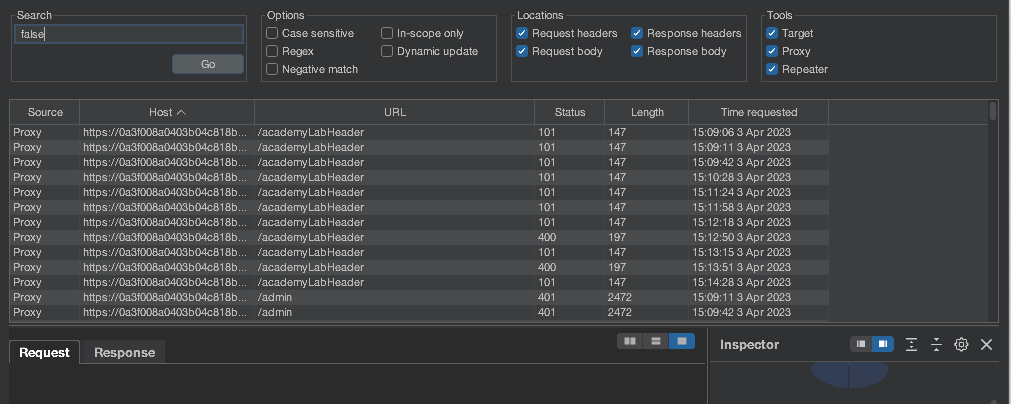ProfessionalCommunity Edition
Testing for parameter-based access control
-
Last updated: February 23, 2026
-
Read time: 2 Minutes
Some sites use insecure access controls based on request parameters. For example, a site might use a role_id parameter to denote whether the user should be treated as having admin privileges in the associated response.
Even if these parameters don't enable you to bypass server-side access controls, they might still be able to get past some client-side controls. For example, they might reveal additional attack surface, such as an admin page that you can view but not necessarily interact with.
You can test the effect that these parameters have by using Burp Suite's match and replace rules to swap out values and analyze the results.
Before you start
Before you start, you should map out the application's visible attack surface. See Mapping the visible attack surface with Burp Suite for more information.
Steps
-
Select Burp > Search from the top-level menu to open the Burp Suite search dialog.
-
Use the Search bar to search for any potentially-insecure parameter values such as
falseandread. Note any values that return results.
-
Go to Proxy > Match and replace.
-
Under HTTP match and replace rules, click Add.
-
Configure a new match and replace rule:
-
Select Request header from the Type drop-down list.
-
Enter one of the parameter values that returned results during the search into the Match field.
-
Enter the value that Burp should replace the selected parameter with into the Replace field. For example, replace the parameter value
falsewith the valuetrue. -
Click OK to save your rule.
-
-
Repeat step 4 to set up rules for Request body and Request param value.
-
Set up rules for any other parameter values found in the search that you want to test.
-
Use the process described in Mapping the visible attack surface with Burp Suite to re-map the site. Note whether the attack surface has changed as a result of the new match and replace rules.
Related pages
- Match and replace
- Lab: User role controlled by request parameter - This lab shows an example of an access control vulnerability in which admin status is denoted by a request header.


